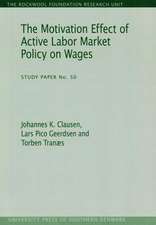Fighting Unemployment: The Limits of Free Market Orthodoxy
Editat de David Howellen Limba Engleză Paperback – 23 dec 2004
Preț: 498.24 lei
Preț vechi: 613.59 lei
-19% Nou
Puncte Express: 747
Preț estimativ în valută:
95.34€ • 99.81$ • 78.89£
95.34€ • 99.81$ • 78.89£
Carte tipărită la comandă
Livrare economică 25-31 martie
Preluare comenzi: 021 569.72.76
Specificații
ISBN-13: 9780195165852
ISBN-10: 0195165853
Pagini: 368
Ilustrații: numerous tables & figures
Dimensiuni: 171 x 221 x 21 mm
Greutate: 0.52 kg
Editura: Oxford University Press
Colecția OUP USA
Locul publicării:New York, United States
ISBN-10: 0195165853
Pagini: 368
Ilustrații: numerous tables & figures
Dimensiuni: 171 x 221 x 21 mm
Greutate: 0.52 kg
Editura: Oxford University Press
Colecția OUP USA
Locul publicării:New York, United States
Recenzii
The essays in this book are an in-depth challenge to the received wisdom that labor market rigidity is to blame for poor employment performance, in Europe and elsewhere. Though not all readers may agree with the nuances, these essays contain a wealth of interesting data analysis and discussion. This volume serves as a perfect antidote to the view that comprehensive labor market deregulation is the only way forward.

























